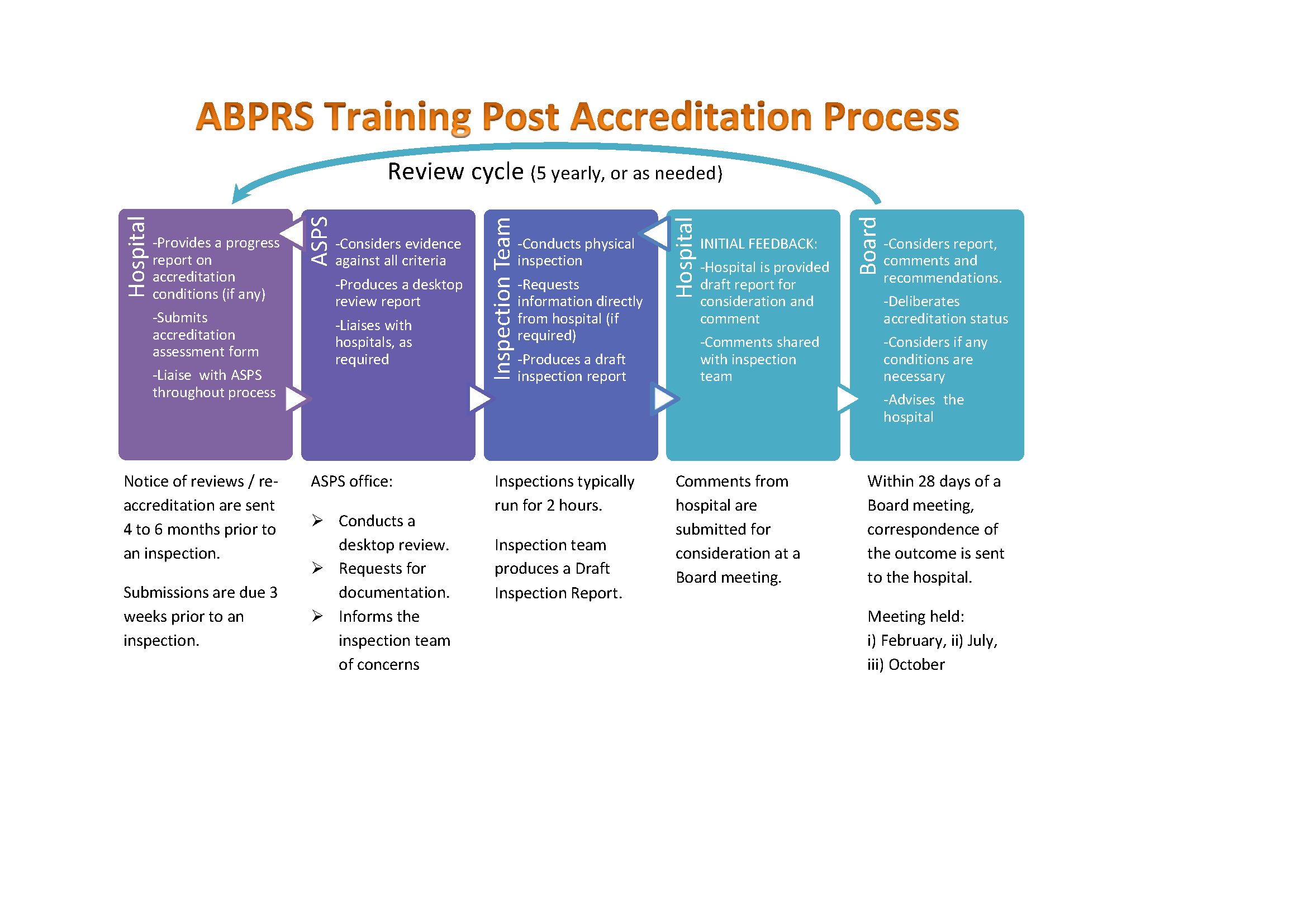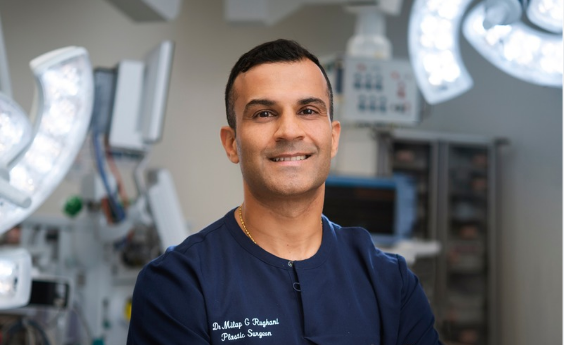About ASPS
Hospital Accreditation
Hospital Accreditation
Plastic surgery trainees are trained at State Government accredited training posts in major teaching hospitals in the public sector and Commonwealth Government approved places in private hospitals throughout Australia. These posts undergo a strict accreditation and review process. A wide distribution of surgical exposure at these posts ensures that trainees cover the complete reconstructive and cosmetic curriculum throughout their formal pre-fellowship surgical training period. The quality of supervision of all trainees by fully qualified Specialist Plastic Surgeons ensures that patients receive the highest quality of care.
In Australia, elective surgery is mainly conducted in private hospitals and day surgeries. In 2009, the Australian Government initiated a funding scheme for training in the private sector, that is currently called the Specialist Training Program or STP. The STP has facilitated the creation of training posts which focus on elective and cosmetic procedures. These posts are affiliated with major teaching hospitals to ensure that trainees receive a balanced learning experience during each surgical rotation.
Training sites provide training and experience for the gamut of plastic surgery procedures including hand surgery, microsurgical procedures, treatment of burn injuries, cranial and maxillofacial techniques, melanoma and other reconstructive and cosmetic procedures. Advanced trainees also have the opportunity to apply for placement at special craniomaxillofacial training posts in various parts of Australia.
Accredited hospitals – download here.
The Accreditation Process
The accreditation process incorporates all of the Standards, Process and Criteria for the Accreditation of Hospitals and Posts for Surgical Education and Training published by RACS. Additional criteria relevant to Plastic and Reconstructive Surgery have been added to the ASPS accreditation application form.
Hospitals interested in establishing new or additional training posts should review the RACS Training Post Accreditation Guideline (2017) and complete the application form.
Contact ASPS office for enquiries.
Application Process
Applications for:
- new or additional posts, or
- re-assessment of existing posts
must be made on the Hospital Accreditation Assessment form, or in accordance with instructions from the Training Board.
Materials supporting a submission, or to accompany the form, can be submitted to ASPS by email or via an online file sharing platform. Contact ASPS National Education and Training Manager to discuss file sharing options.
- Download Hospital Accreditation Assessment form
- Download Training Regulation Hospital Training Post Accreditation and Reaccreditation (last update Sept ’25)
- Download RACS Policy (external link)
Applications for conversion of unaccredited registrar positions must be made in writing by email to education@plasticsurgery.org.au, and include the requirements set out in the Training Regulation (section 5.3).
- Formal written application lodged by email to education@plasticsurgery.org.au.
- Predefined list of evidence:
- The last twelve (12) months of procedure-level detailed unaccredited registrar logbooks (including primary vs. assistant operator); and
- Proposed SET trainee timetable, on call schedule, weekly theatre roster and outpatient department schedule; and
- Written confirmation of secured funding per clause 5.3.c.ii.
Timelines
Existing posts are scheduled for review before the 5-year anniversary of accreditation lapses.
ASPS will contact such hospitals and Health Department contacts in accordance with the typical timeline depicted below and in the Australian Medical Council’s Communication Protocol.
Out of cycle reviews of training posts may be initiated based on feedback or reports received during an accreditation period.
Applications for conversion of unaccredited registrar positions may be submitted at any time, provided they meet the requirements set out in the Training Regulation.
New applications and applications for additional positions at existing posts must be received by 31 January to be considered for the following year’s trainee appointments. Late applications will not be eligible for consideration.

Training Boards consider the material produced by inspection teams (reports), stakeholders (hospital executive, surgeons) and trainees (unaccredited, accredited) and information available through other means in assessing the merits of the accreditation application.
To facilitate procedural fairness in the application process, the Training Board may temporarily extend an existing accreditation certification period to enable enough time to conduct the full process.
Outcomes may include:
- Re-/Approval– Unconditional accreditation is granted, typically for a duration of 5 years, however shorter periods of time are granted. Recommendations for continuous improvement may be made to successful applicants.
- Conditional re-/approval– One or more condition must be fulfilled within a pre-defined timeframe. Typically, accreditation is granted with a 12 or 24-month duration.
- Withdrawal (or Non-renewal) – Existing accreditation is withdrawn with the reason/s provided.
- Not approve– Accreditation is not granted with the reason/s provided.
Reconsideration, Review and Appeal
This process is available to any person, organization, or body corporate directly affected by an adverse decision made in relation to the training and education functions of the College, including the Training Boards.
Hospitals have these options available to them to challenge all decisions regarding their accreditation. Challenges are governed by the RACS Regulation “Reconsideration Review and Appeal” (RRA), available to download from www.surgeons.org.
Timelines for each of these steps in RRA are advertised in the RACS RRA Regulation.
- The first step is called Reconsideration. Applications are submitted directly to the original decision maker, being the Training Board. Applications are submitted to ASPS Office education@plasticsurgery.org.au, and copied to rra.administrator@surgeons.org.
- The second step is Review. Applications are submitted to rra.administrator@surgeons.org.
- The third and final step is Appeal. Applications are submitted to rra.administrator@surgeons.org.
Featured Stories

ASPS welcomes new Ahpra guidelines for Non-Surgical Cosmetic Practitioners
Sydney. June 3, 2025: The Australian Society of Plastic Surgeons…
Continue reading
